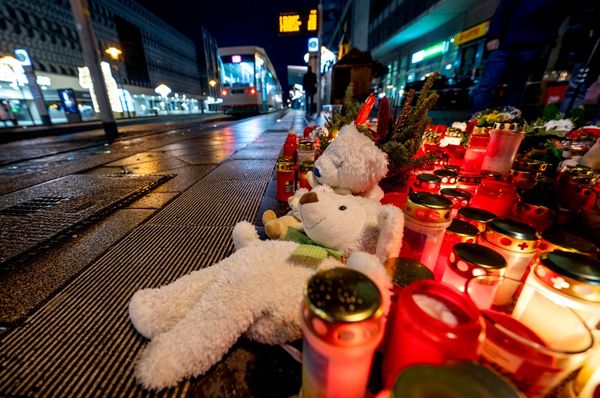
The last independent news outlet in repressive Cambodia, Voice of Democracy, was shuttered by the country’s prime minister-cum-dictator Hun Sen last week, only months out from quinquennial elections due to be held on July 23.
The closure is the latest act by a nation intent on crushing press freedom, underscoring the growing attacks on press freedom across South-East Asia that echo increasing authoritarianism.
Voice of Democracy had published a story claiming Hun Sen’s son, deputy military chief Hun Manet, had signed a donation of US$100,000 for earthquake relief in Türkiye. Manet, who is being groomed as his father’s heir, demanded a public apology, claiming the story “hurt” the country’s reputation. Foreign aid packages can be signed off only by the prime minister, but despite VOD claiming it had evidence Hun Manet had don it, and also issuing an apology, it was forcibly closed.
Cambodian Center for Independent Media (CCIM), the non-government organisation that runs Voice of Democracy, received funding from several Western embassies, as well as from press freedom and rights groups including Reporters Without Borders and Transparency International. Its journalists had regularly been banned from government press conferences.
On February 13, Cambodia’s information ministry cancelled the outlet’s publishing and broadcasting licences and revoked its right to operate radio and online news services. Since then, several internet service providers throughout the country have blocked VOD‘s web-based Khmer and English services.
“No journalist should ever be attacked as a result of their work or identity,” the Cambodian Journalists Association said.
“We hope the government acknowledges the essential role of VOD and its journalists, along with the remaining independent media outlets in the country, and their right to do their work in accordance with the law and without fear of intimidation and harassment.”
The International Journalist Federation described the shutdown as a “serious misuse of power [posing] a severe threat to press freedom in Cambodia”.
It urged the government to reverse its decision and “ensure the outlet is able to continue to produce independent and critical journalism without fear of reprisal”.
The harsh treatment of Cambodian journalism outlets is the result of a decades-long battle between Hun Sen’s government and the media, and last week’s decision mimics moves made in the lead-up to the last poll in 2018.
In 2017, the English-language The Cambodian Daily was forced to close. Early the following year, its rival, The Phnom Penh Post, once owned by Australian Bill Clough, was subjected to a forced sale and it no longer publishes criticism of the government.
Hun Sen has shown his political rivals a similar degree of ruthlessness, locking many up over the years and making successful opposition parties such as the Cambodia National Rescue Party — which almost won the 2018 election — illegal.
The media landscape in Cambodia now more closely resembles those in its Communist Party-run neighbours Laos and Vietnam, where all media is controlled by the state and no criticism of government is ever brooked. China’s influence — by dint of its huge investment in the country — cannot be underestimated.
Overall, South-East Asian nations perform poorly in global freedom rankings, all coming in the bottom half of the annual list compiled by Reporters Without Borders.
In conflict-torn Myanmar, the military junta has crushed media freedom since seizing power in February 2021, and has become one of the “world’s largest prisons for media professionals”, says Reporters Without Borders. The group estimates 81 journalists and media professionals are held in detention, along with thousands of their fellow citizens.
Even in countries in the region where the media has considerably more freedom, there are concerns about the creep of state censorship and control over the press.
This is especially true of the Philippines, a nation with traditionally the most vibrant and combative media in the region. Under the six-year administration of president Rodrigo Duterte, which ended last June, the media was a prime target for his authoritarian ambitions.
In the crosshairs was the outspoken and wildly admired online publication Rappler and its editor Maria Ressa, who won the 2021 Nobel peace prize — alongside Russian journalist Dmitry Muratov, editor of Novaya Gazeta — for speaking truth to power. Ressa fearlessly documented the death toll and residual effects of Duterte’s extrajudicial “war on drugs”, during which thousands of innocent users and many small-time dealers were executed by state-sponsored hit squads.
Duterte used tactics increasingly seen by depots around the world, bringing trumped-up charges of all types against Ressa and the publication. Just last week she was acquitted over alleged tax evasion, but she still faces more court battles.
The only wealthy nation in the region, Singapore, also lags badly due to effectively being a one-party state, where the government tightly controls the media regulator and senior media appointments. The government has recently been focused on bringing independent online sites into line with some leading publications fleeing offshore. For example, last year, The Online Citizen moved to Taiwan and New Naratif moved to Manila.
The continuing deterioration in media freedom across the region is a big problem for countries such as Australia, which have a vested interest in a more open and democratic environment. But as the cases of Voice of Democracy in Cambodia and Rappler in the Philippines have shown, providing funding for independent media — as other nations such as the US have done — can often make it a target.







